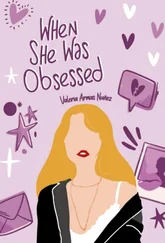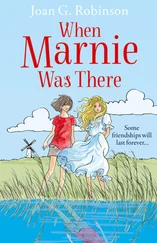Ulrika uses the word ‘ordinary’ to describe herself, as though it is the one card in her hand that can’t be beaten. ‘People like me because … Well, they like me, if they like me at all, because I’m ordinary. I suppose that when I started out, nearly twelve years ago, there weren’t a lot of young female presenters. There wasn’t the amount of satellite channels that there are now, and even Sky was only just starting. Now, there are millions of young girls who are TV presenters and they’re on the cover of just about everything. But I do think that I’m just ordinary. And I don’t mind laughing at myself. So maybe I just make people feel comfortable. People don’t really know what pigeon-hole to put me in, because I keep changing my course and I don’t seem to fit into any pattern.
‘I’m not quite sure how it all happened for me. I didn’t mind messing around in a crowd, but if there was a serious audience I’d probably walk the other way. Even now, when I do stand on a stage, I tend to be very self-deprecating and take the piss out of myself. Because I feel that I’m almost not worthy to be there, I think that if they can see me laughing at myself, then they won’t laugh at me. We can just laugh at me together.’
Even as she’s saying this, in the wholly ordinary surroundings of a National Trust tea room in the Home Counties, on a perfectly straightforward Thursday afternoon, another nice woman (middle-aged, mumsy, terribly polite) comes up and asks her for a pair of autographs. ‘We’ve been having a debate,’ the woman explains, ‘and we want to know if you’re Ulrika Jonsson?’ ‘I was this morning,’ Ulrika replies, signing the proffered menus, and then she’s worrying whether the recipients of these autographs will spot that she’s written ‘lots of love’ on one of them and only ‘love’ on the other.
And that’s another thing that you begin to notice about Ulrika – she seems as though she is constantly having to monitor her every slightest move, as though anything that she says or does, however trivial, could be seized upon and used against her. Again, she seems to use her ordinariness as both weapon and shield in her constant fight with what she sees as her misrepresentation within the press. It’s as if she’s trying to shy away from something, these days, even as she’s still on the celebrity roller-coaster.
But with the media feeding frenzy that attended the ‘discovery’ that Ulrika is pregnant with her second child, you begin to see the reasoning behind her paranoia. Despite the fact that, by her own admission, she has taken a deliberate step back from the limelight, taking on very little new work, the news of her pregnancy dominated no fewer than five newspaper covers over a weekend when there were plenty of other important news stories – the little matter of major rioting in central London, for instance.
‘The pregnancy was never announced – it didn’t come from me or from any of the people who work with me. But I’ve been forced to admit it, unhappily, when I’m just a woman who has become pregnant and would like to be enjoying the pregnancy. I can’t describe the feeling of panic which all this attention and prying has caused for me. Not least because I’m only just pregnant, and any woman will tell you that the first three months of a pregnancy can be very problematic. This ridiculous media circus doesn’t make me feel important, it makes me feel ridiculous. None of it has any relevance to my job, or what I’m known for, and the stress is enormous.’
From the very beginnings of her career as a TV AM weather girl, who went on to present the snappily athletic series ‘Gladiators’, the fact that Ulrika was partially sold to the public as a bouncy ‘Swedish blonde’ has made her natural tabloid fodder. Even when she made the jump from mainstream to cult, by appearing as a kind of ironic version of herself on ‘Shooting Stars’ – the send-up of a quiz show hosted by Vic Reeves and Bob Mortimer – Ulrika’s private life was always made pretty public by the press. Married, separated, and now a single parent, her every holiday and dinner date (she once went out with Prince Edward) seemed to prompt another frenzied whoop of glee from the paparazzi. Now, you can hear the mounting anger in her tone the moment she touches on the subject of the tabloids.
‘What they’re basically saying is, “Because you earn all this fucking money, and because you get all the fucking glory, you can take some of the shit as well. Because we’re going to dig, and we’re going to chase, and we won’t be happy until we’re burying you.” And I just think that’s wrong. I think that because I’m in the entertainment business, that’s considered egotistical and they just want to shatter it or bring it down.
‘There are certain people in the business who will give the press exactly what they want. They’ll turn up to everything and they’ll pose and do anything. I’ve never been like that, but I’ve still managed to attract that kind of attention. Whether I burp or fart it’s in the papers. But then when I was pregnant, for instance, I was chased in a car.’
Beyond the tabloids, one of the difficulties facing Ulrika, professionally, is her lack of a coherent role. Over the course of her career, she has, for instance, swung from singing in a musical to interviewing the Chancellor of the Exchequer about macroeconomics. Similarly, as the presenter of ‘Gladiators’ – which was hugely successful as a prime-time series, reaching the mega-millions figures in terms of ratings – she was placed in a position where she could spend the rest of her career being known for just one programme. Her popularity on ‘Shooting Stars’ went some way to reinventing her for a new audience. But once again, with Ulrika, you are faced with a mass of contradictions beneath the ‘sexy but jolly good fun’ public image.
‘It was about six months ago that I discovered I had a real crisis of persona, to so speak. I really did have no idea of who I was. There’s always been two people in my personality. One is very calm, and in need of security and a solid home life. The other can be completely hedonistic – in a fairly mild, but still wild way. Now I’m feeling the need to explore new areas – things that are nothing to do with TV or public life. I’d like to pursue my interest in painting and writing for instance.
‘I’m developing the idea for a novel – it would sound too grand to say I’m actually writing a novel, because that’s a big enterprise. But I have read some complete shit, and thought, “I could do better than that!” This is me boasting, but I’d read about all these young people writing the stories of their lives – I just finished Geri Halliwell’s autobiography – and I’d always thought that I’d write the story of my life, if only as a form of therapy. So I’ve started trying to write it down in a couple of different styles, but I haven’t worked out which style to follow yet. It’s not necessarily going to be for publication, but it would be for my own benefit.
‘The other thing that I’ve been doing for years is writing poetry, and that, I think, would be really interesting to publish. But it is so terribly personal, coming from all kinds of experiences that I’ve been through – good and bad, but predominantly bad.’ The contradictions in Ulrika resurface once again; here’s a woman whose bedside reading, she says, is Joanna Trollope’s aga-sagas and Dostoevsky’s epic description of insanity and despair, The Idiot .
In many ways, it would seem to make sense for her to follow the path of ‘Shooting Stars’, and take advantage of the high fashionability that type of ‘ironic’ TV now commands. It has become a feature of post-modern comedians, such as Vic and Bob, or Harry Hill, to showcase essentially conservative media personalities within the surreal, volatile set-up of their programmes. Similarly, Absolutely Fabulous , as a hip sit-com, brought new audiences and brilliant new roles for both June Whitfield and Joanna Lumley. But are these ‘guest stars’ being asked, to some extent, to become stooges?
Читать дальше












